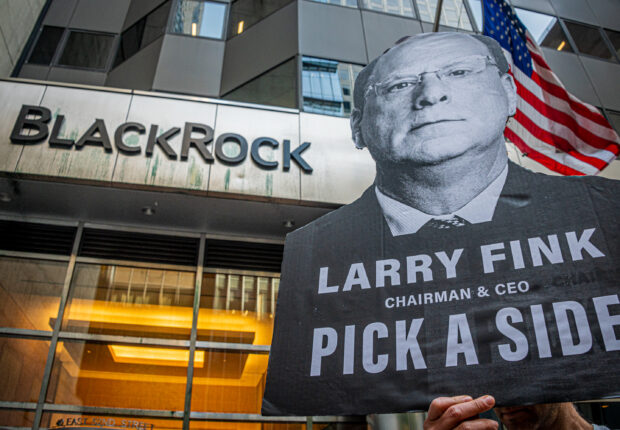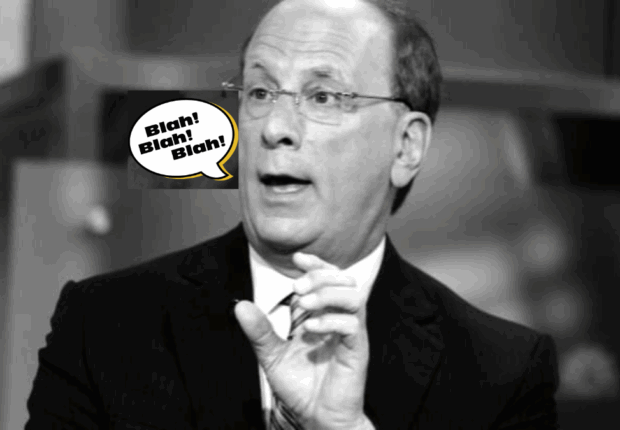Key shareholder votes this spring will test the commitment of top asset managers to holding companies accountable on climate change
By Eli Kasargod-Staub, Executive Director of Majority Action
(April 1/2020) The upcoming shareholder meeting season is unprecedented in an absolutely unprecedented time. We are in the middle of a global pandemic that threatens millions of lives and livelihoods. The COVID-19 crisis is playing out against the backdrop of the existential threats of escalating climate change. Rising seas, droughts, flooding, extreme heat and more are escalating around the world, all while emerging disease outbreaks, population movements, and political and economic conflicts will constrain governments’ ability to address them. COVID-19, and the economic effects of our efforts to contain it, provide just a small preview of the catastrophic systemic risks posed by climate change. This shareholder season will be a critical test as to whether fossil fuel-intensive industries will take the steps needed to achieve our net-zero future and stem the worst effects of catastrophic climate change — and how the “Big Three” asset managers, BlackRock, Vanguard and State Street, will use their outsized shareholder voting power to shape this outcome.
BlackRock, Vanguard, and State Street collectively vote about 25% of shares at S&P 500 companies — meaning they have the power to hold corporate boards accountable and shift companies’ actions on climate. Last year these three asset managers used their voting power to back 99% of oil and gas and electric power company directors across the S&P 500, despite woefully inadequate action across those sectors to combat climate change. But this year they’ve made some big promises. This January, BlackRock CEO Larry Fink committed to put climate change at the center of BlackRock’s investment strategy, and has reemphasized that BlackRock will hold directors accountable for climate action as financial markets reel during the COVID-19 pandemic. State Street, similarly, put corporations on notice that it will vote against company directors that are failing to make adequate progress on climate change and other social, environmental, and governance issues.
These statements will be put to the test on a range of key shareholder votes this season, both on shareholder resolutions and director elections. In particular, three key sectors will be important to watch: electric power, finance, and oil and gas — all of which must make dramatic transformations to curb the worst of catastrophic climate change and protect long-term investors. Votes at the largest U.S. companies in each of these three categories will provide a clear test of whether BlackRock and other asset managers will walk their talk this season: Duke Energy, JPMorgan Chase, and ExxonMobil.
Electric Power: Duke Energy
Decarbonizing electricity is the linchpin of getting to net-zero emissions, and Duke Energy, as the largest and highest-emitting publicly traded electric utility in the U.S., has to lead the way. Despite Duke making a public commitment to achieve net-zero emissions by 2050, its investment plans will significantly undermine its chances of achieving this. Duke Energy plans to keep the majority of its coal capacity online past 2030, and it largely replaced the coal it has retired with new carbon-emitting gas infrastructure. Instead of fully embracing renewables, the company plans to bring on 14,988MW more in gas capacity from 2020 to 2034, locking in tens of millions of metric tons of CO2 for decades to come. According to InfluenceMap, Duke is also a leading opponent of Paris-aligned climate policies; Duke is known to have supported multiple groups seeking to undermine clean energy policy.
Three votes at Duke’s shareholder meeting on May 7th are critical to holding the company accountable on these climate risks. First is a resolution filed by New York City’s head pension official to establish an independent chair of the board, a critical governance reform to hold management accountable to decarbonize. Duke’s CEO and chair are currently the same person, and the lead independent director has been there for 29 years. Two more resolutions demand that Duke be more transparent with its political and lobbying expenditures. These same resolutions were up for a vote last year and would have received majority support if BlackRock and Vanguard had voted for them. The big three asset managers could potentially swing the vote on all three of these measures this year at Duke, and their votes in favor of these resolutions are critical for holding Duke accountable to re-aligning its capital expenditures and policy influence with its net-zero target.
Finance: JPMorgan Chase
Next up, likely in mid-May, is JPMorgan Chase — the largest fossil fuel financier in the world. JP Morgan has undertaken lending and underwriting to the fossil fuel sector to the tune of over $268 billion since 2016. JPMorgan’s’ financing of fossil fuel expansion is incompatible with the global transformation needed to address climate change, and it’s even at odds with its own financial analysts who have sounded the alarm on how the systemic catastrophe of climate change could wreak havoc on financial markets.
There are four key votes up at JPMorgan this season that will significantly shape its trajectory on climate for the years to come. The first and most significant vote is to oppose the re-election of Lead Independent Director Lee Raymond, former CEO/Chair of ExxonMobil. Raymond was the architect of ExxonMobil’s notorious climate denial strategy, even after Exxon’s own scientists warned executives of the dangers of warming due to rising CO2 emissions. As Bill McKibben aptly stated, “no single human being was better positioned to do something that might have slowed the chaos now engulfing us.” After 33 years of service, Raymond wields outsized power on JPMorgan’s board, and he is uniquely unqualified to hold CEO and Chair Jamie Dimon accountable on climate risks. As a former JPMorgan Chase managing director put it: “how he is not on trial for crimes against humanity is beyond me.”
Three critical shareholder resolutions will appear on the ballot at JPMorgan as well. The first calls on the company to report on whether and how it plans to align its portfolio activity with the goals of the Paris Agreement. Another asks the company to report how it is managing the risks of its most harmful fossil fuel financing, such as those in tar sands oil production. The third resolution calls on JPMorgan Chase to establish an independent chair of the board, a measure investors have advanced multiple years since 2012 to put an essential check on CEO Jamie Dimon. Asset managers’ votes on these resolutions will be an important litmus test as to whether they will hold the world’s largest fossil fuel financier accountable to address the systemic risks of climate change.
Oil and Gas: ExxonMobil
Finally, votes in the oil and gas sector will be critical this season — and nowhere more so than at ExxonMobil, whose meeting is likely slated for the end of May. When it comes to climate responsibility, ExxonMobil lags far behind even investor expectations and its international peers like Shell and BP. ExxonMobil’s ongoing failures led two investors — the New York State Common Retirement Fund and the Church of England, which have anchored global investor engagement efforts with the oil major — to commit to voting against all ExxonMobil board members over their inaction on climate change. It is vital that the largest asset managers follow their lead and vote against ExxonMobil’s directors as well — anything short of that would constitute an endorsement of the oil major’s recalcitrance and irresponsible governance. In addition, both an independent chair proposal, which would introduce needed accountability into ExxonMobil’s governance structure, and a lobbying disclosure resolution are both up for a vote — both of which would have received majority support last year had BlackRock and Vanguard voted for them.
The key votes here are just some of the most important ones to watch this shareholder season. In the coming weeks, Majority Action will release our full list of votes with resources and analysis for investors, reporters, and activists to help track the most critical shareholder season on record. Nothing less than a wholesale transformation from the utility, finance, and oil and gas sectors will be sufficient to stem the effects of catastrophic climate change — which will only take place if investors hold their boards accountable. With BlackRock and other top asset managers finally acknowledging the systemic nature of the climate crisis and their responsibility to act, this shareholder season will reveal whether or not their climate commitments are real — or just more empty rhetoric.

